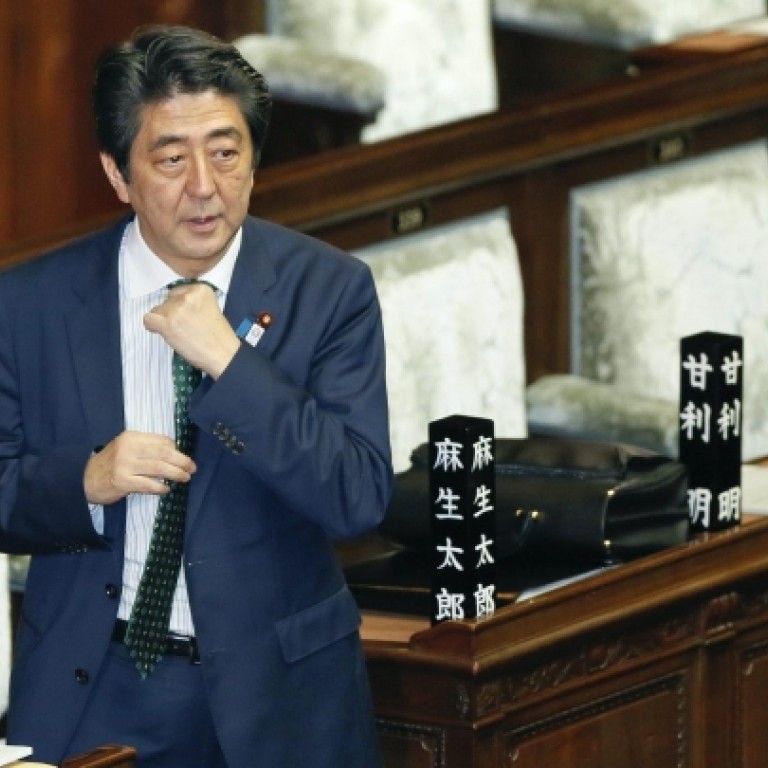
Tokyo poll bolsters Abe agenda
Japanese Prime Minister Shinzo Abe's ruling bloc swept to victory in a weekend Tokyo election, a sign it's on track for a hefty win in a July national vote that could strengthen his hand as he aims to end economic stagnation and bolster defence.
Japanese Prime Minister Shinzo Abe's ruling bloc swept to victory in a weekend Tokyo election, a sign it's on track for a hefty win in a July national vote that could strengthen his hand as he aims to end economic stagnation and bolster defence.
Politicians and pundits had been eyeing the outcome of the Tokyo Metropolitan Assembly election for clues to how well Abe's Liberal Democratic Party and its junior partner, the New Komeito, will fare in a July 21 election for parliament's upper house that opinion polls suggest they will win handily.
"We have received a good evaluation of our handling of the government over the past six months," Abe, who campaigned heavily, said. "We would like to do our very best so people can feel that the economy is recovering as soon as possible."
All of the LDP's 59 candidates won seats in the 127-member Tokyo assembly to regain the top spot. It was the party's biggest victory in the metropolis since 2001, when it was buoyed by the popularity of charismatic leader Junichiro Koizumi.
All of the New Komeito's 23 candidates also won, though with fewer votes than four years ago.
In the latest sign of its faltering fortunes, the main opposition Democratic Party of Japan slid to 15 seats, fewer than the Japan Communist Party's 17 seats.
Osaka Mayor Toru Hashimoto's right-leaning Japan Restoration Party won just two seats, reflecting his waning popularity after remarks that seemed to justify Japan's wartime military brothels.
That could spell trouble for any LDP hopes of allying with Hashimoto to push constitutional reform, although another small conservative party, the Your Party, won seven seats.
But voter turnout was a near record low at 43.5 per cent. Analysis showed the LDP won 46.5 per cent of the seats with just 15 per cent of all eligible votes.
"This tells us that the LDP is likely to win the upper house primarily because the opposition is divided and there is no alternative," said Chuo University political science professor Steven Reed.
Pledging to revive growth, bolster its defence posture and revise Japan's pacifist constitution, Abe returned to the top job after the LDP's lower house election win in December. But the LDP and New Komeito lack a majority in the upper house, which can block legislation.
Some analysts said the solid victory in Japan's capital spelled good news for Abe's pledges to implement structural reforms including deregulation, the so-called "Third Arrow" of his "Abenomics" prescription to end stagnation. The first two "Arrows" are hyper-easy monetary policy and spending.

